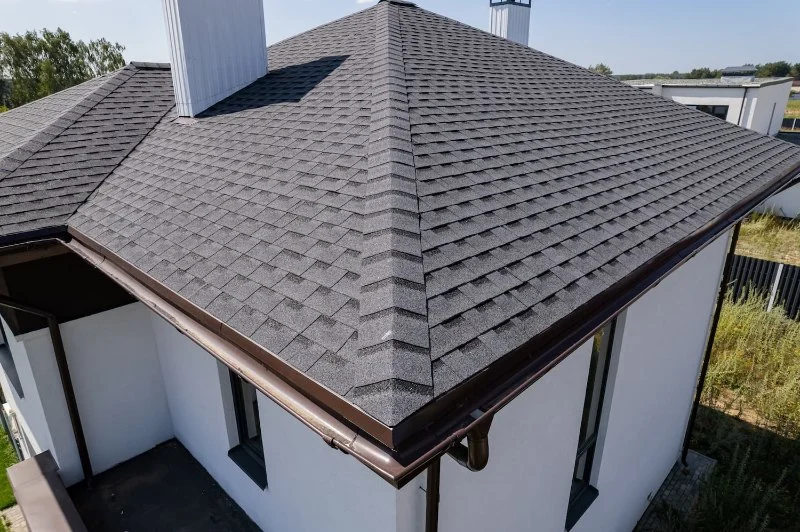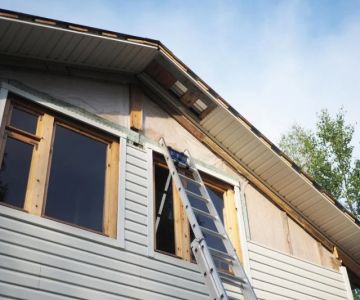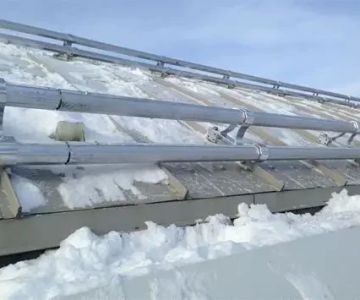
- 1- Introduction to Roof Replacement Budgeting
- 2- Key Factors to Consider When Budgeting for a Roof Replacement
- 3- How to Estimate the Costs of a Roof Replacement
- 4- Tips to Save Money During a Roof Replacement
- 5- Conclusion: Ensuring a Successful Roof Replacement Project
1- Introduction to Roof Replacement Budgeting
Replacing your roof can be a costly and daunting project, but it’s an essential part of maintaining the safety and value of your home. Whether it’s due to age, weather damage, or other issues, understanding how to budget for a roof replacement is crucial to ensure you don’t get overwhelmed by unexpected costs. In this guide, we’ll walk you through the steps to effectively budget for your roof replacement and make informed decisions about your investment.
Budgeting for a roof replacement requires careful planning. By considering various factors such as materials, labor, and the complexity of your roof structure, you can better estimate costs and avoid surprises down the road.
2- Key Factors to Consider When Budgeting for a Roof Replacement
Before you start budgeting, it’s important to understand the various factors that influence the overall cost of a roof replacement. These factors can vary depending on the size of your home, the type of roof, and the materials you choose. Here are some of the key considerations:
1. Roof Size and Pitch
The size of your roof plays a significant role in determining the cost. Larger roofs require more materials and labor, which will increase the overall price. Additionally, the pitch (or steepness) of your roof can affect how difficult it is to install, with steeper roofs generally costing more to replace due to the added complexity.
2. Type of Roofing Material
Roofing materials come in a variety of options, each with its price range. Asphalt shingles are the most affordable, while materials like metal, slate, or tile can be significantly more expensive. The material you choose will not only impact the cost but also the lifespan and durability of your roof.
3. Labor Costs
Labor costs can vary depending on the roofing contractor and the complexity of the job. It’s important to get multiple quotes from reputable contractors to ensure you’re getting a fair price for the work. Keep in mind that cheaper labor may sometimes result in lower-quality work, so always prioritize quality over price.
3- How to Estimate the Costs of a Roof Replacement
To effectively estimate the cost of your roof replacement, you need to take several steps to calculate your roof’s square footage, choose the right materials, and factor in labor costs. Here’s how to break down the costs:
1. Measure Your Roof
The first step is measuring your roof’s square footage. You can do this by multiplying the length and width of each section of your roof and adding them together. Most roofing materials are priced by the square (100 square feet), so knowing your total square footage is essential.
2. Choose Your Roofing Material
As mentioned, the type of roofing material you choose will impact your costs. For example, asphalt shingles typically cost $100-$150 per square, while premium materials like slate or metal can cost $500 or more per square. Consider your budget and the long-term benefits of different materials when making your decision.
3. Add in Labor Costs
Labor costs typically range from $150 to $300 per square, depending on your location and the complexity of the roof. For a standard roof replacement, you may need to budget for 10-15% of the total project cost for labor. Be sure to get multiple quotes from different contractors to ensure you’re getting the best value.
4- Tips to Save Money During a Roof Replacement
Roof replacements are a significant investment, but there are ways to save money without compromising quality. Here are some tips to help you reduce the overall cost:
1. Compare Quotes from Multiple Contractors
One of the best ways to save money on your roof replacement is to compare quotes from several reputable contractors. While you should always prioritize quality, getting multiple quotes can help you find a fair price and potentially save you hundreds or even thousands of dollars.
2. Opt for Asphalt Shingles
If you’re on a budget, asphalt shingles are the most cost-effective roofing material. They are durable, easy to install, and come in a variety of styles and colors, making them a popular choice for many homeowners.
3. Consider Roof Repair Instead of Replacement
If your roof isn’t too damaged, a repair may be a more affordable option than a full replacement. Have a professional roofing contractor inspect your roof to determine whether repair is a viable option.
5- Conclusion: Ensuring a Successful Roof Replacement Project
Proper budgeting for a roof replacement is essential for ensuring a successful project. By understanding the factors that influence the cost and following these steps to estimate expenses, you can make an informed decision about your roof replacement. Remember to choose the right materials, hire a reliable contractor, and compare quotes to ensure you stay within budget.
If you’re ready to start your roof replacement project, check out Total Roofing Hub for expert services and top-rated professionals who can help you achieve a durable and affordable roof replacement.









 Skyline Designs Roofing5.0 (99 reviews)
Skyline Designs Roofing5.0 (99 reviews) Perfect Roofing Installations4.0 (60 reviews)
Perfect Roofing Installations4.0 (60 reviews) Dog Tags Construction LLC4.0 (16 reviews)
Dog Tags Construction LLC4.0 (16 reviews) Gutter Shutter of Central Maryland5.0 (9 reviews)
Gutter Shutter of Central Maryland5.0 (9 reviews) Sam Cline Handyman Services4.0 (37 reviews)
Sam Cline Handyman Services4.0 (37 reviews) Paramount Builders Inc.4.0 (302 reviews)
Paramount Builders Inc.4.0 (302 reviews) Should I Repair or Replace My Roof?
Should I Repair or Replace My Roof? Top 10 Signs Your Roof Needs Immediate Repair Before It’s Too Late
Top 10 Signs Your Roof Needs Immediate Repair Before It’s Too Late The Pros and Cons of Vinyl Siding: Is It the Right Choice for Your Home?
The Pros and Cons of Vinyl Siding: Is It the Right Choice for Your Home? How to Choose a Reliable Roofing Contractor Near You – Expert Tips
How to Choose a Reliable Roofing Contractor Near You – Expert Tips Top 10 Signs Your Roof Needs Immediate Repair You Shouldn’t Ignore
Top 10 Signs Your Roof Needs Immediate Repair You Shouldn’t Ignore How to Spot Hail Damage on Your Roof | Quick Guide for Homeowners
How to Spot Hail Damage on Your Roof | Quick Guide for Homeowners